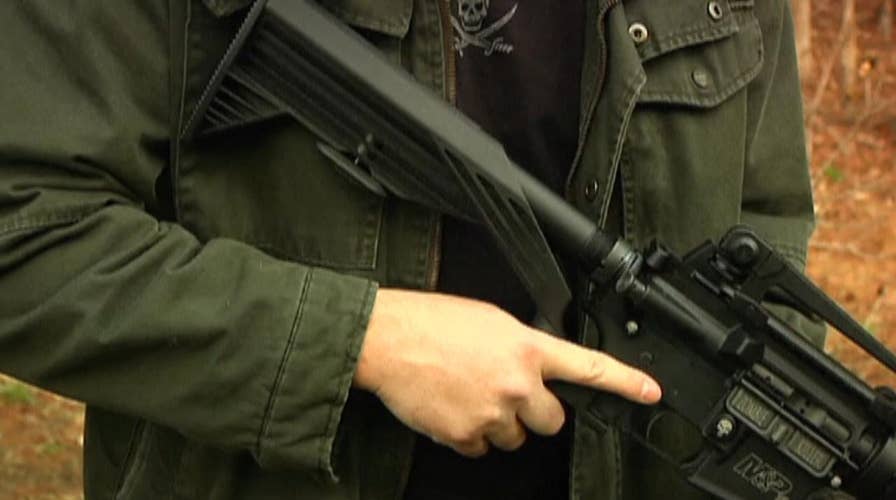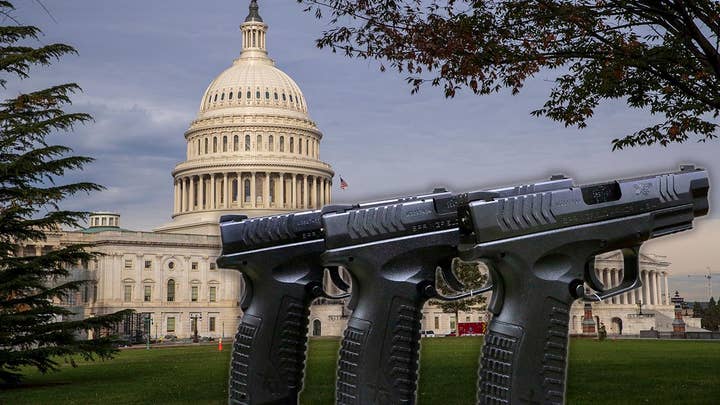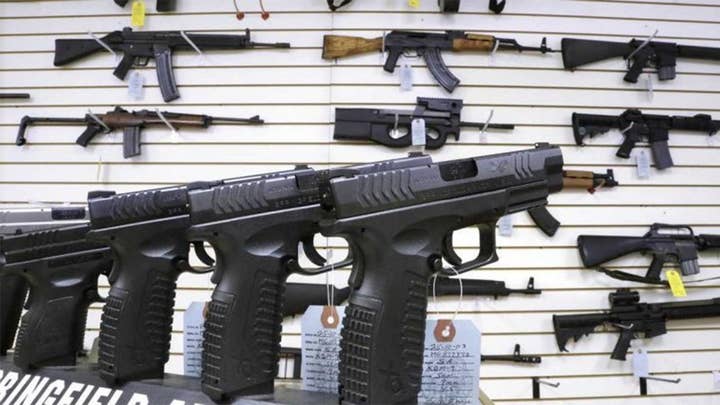What are bump stocks?
President Trump is calling for a ban on bump stocks. Twelve bump stocks were found in the hotel room of the Las Vegas massacre shooter. Lawmakers, including some Republicans, are concerned about their capabilities. But what are they?
The Trump administration on Tuesday took first steps to ban the sale of bump stocks on semi-automatic weapons and has made them illegal to possess beginning in late March.
Bump stocks, which allow semi-automatic weapons to fire rapidly like automatic firearms, have come under increasing scrutiny after they were used in October 2017 when a man opened fire from his Las Vegas hotel suite into a crowd at a country music concert below, killing 58 people and injuring hundreds more in the deadliest mass shooting in modern U.S. history.
“Following the mass shooting in Las Vegas, ATF received correspondence from members of the United States Congress, as well as nongovernmental organizations, requesting that ATF examine its past classifications and determine whether bump-stock type devices available on the market constitute machineguns under the statutory definition,” the regulation, which was signed by Acting Attorney General Matthew Whitaker on Tuesday morning, noted.
It continued: “The Department decided to move forward with the rulemaking process to clarify the meaning of these terms, which are used in the NFA's (National Firearms Act) statutory definition of ‘machinegun.’”
The regulation will go into effect 90 days after it is formally published in the Federal Register, which is expected to happen on Friday, a Justice Department official said.
People who own bump stocks will be required to either surrender them to the ATF or destroy them by late March, the official said. The change has undergone a legal review and the Justice Department and ATF are ready to fight any legal challenge that may be brought, the official added.
In March, President Donald Trump said his administration would "ban" the devices, which he said "turn legal weapons into illegal machines."
Shortly after the president's comments, the Justice Department announced that it had started the process to amend federal firearms regulations to define bump stocks as machine guns. The Bureau of Alcohol, Tobacco, Firearms and Explosives sought public comment on the proposal, drawing more than 35,000 comments.
The amended regulations reverse a 2010 ATF decision that found bump stocks did not amount to machine guns and could not be regulated unless Congress changed existing firearms law or passed a new one. In the aftermath of the Las Vegas shooting, there was a growing push by some members of Congress to ban bump stocks, but no legislation was passed. At least 10 states have sought their own restrictions on the devices.
Police said the gunman in the Las Vegas massacre, Stephen Paddock, fired for more than 10 minutes using multiple weapons outfitted with target scopes and bump stocks. Paddock fatally shot himself after the shooting and there were 23 assault-style weapons, including 14 fitted with rapid-fire bump stock devices, strewn about the room near his body on the floor of his 32nd-floor hotel suite at the Mandalay Bay casino-hotel.
The largest manufacturer of bump stocks, Slide Fire Solutions, announced in April that it was going to stop taking orders and shutting down its website. The remaining stock of the devices is now being sold by another company, RW Arms, based in Fort Worth, Texas.
The Associated Press contributed to that report.







